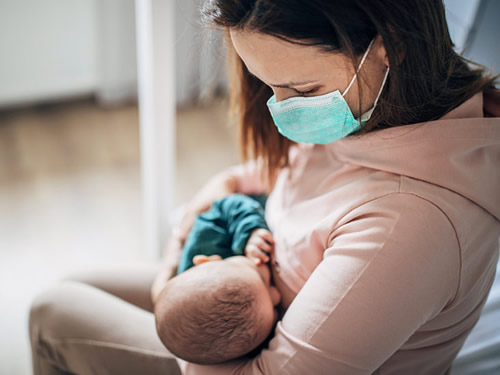Breastfeeding babies can be a way of protecting them against COVID-19, a new study reveals.
The study was conducted by researchers from the Beijing University of Chemical Technology in China and published on a pre-peer review site.
The researchers found that mother’s milk prevented the pathogen from infecting and replicating in cells, even if the child does not have antibodies.
The Chinese lab study exposed human lung and gut cells to severe acute respiratory syndrome coronavirus 2 (SARS-CoV-2), the strain of coronavirus that causes COVID-19.
It analysed the effect a breast milk sample collected in 2017, years before the pandemic, had on the cells.
The researchers mixed healthy cells into human breast milk, after which the milk was washed off and the cells were exposed to the virus.
Findings by the study revealed that the virus did not enter most of the cells and in few cases where it entered, the virus could not replicate itself.
This implies that breast milk could help in halting the spread of the coronavirus as well as other viruses such as norovirus, and even bacteria.
“SARS-CoV-2 could infect [cells] and the infection could be inhibited by breastmilk (2 mg/ml) , which was reported to have anti-SARS-CoV-2 activity,” the study read.
Although the study is yet to be peer-reviewed, its findings corroborates recommendations of the World Health Organisation (WHO) that mothers with COVID-19 should continue to breastfeed their babies.
The global health agency said the benefits of breastfeeding outweigh the potential risks of COVID-19 transmission.
Further studies are being conducted on the effect of breastfeeding in curbing the spread of COVID-19.
A US national study is currently being implemented by the Washington State University to determine whether or not babies can contract COVID-19 from breastfeeding.



























